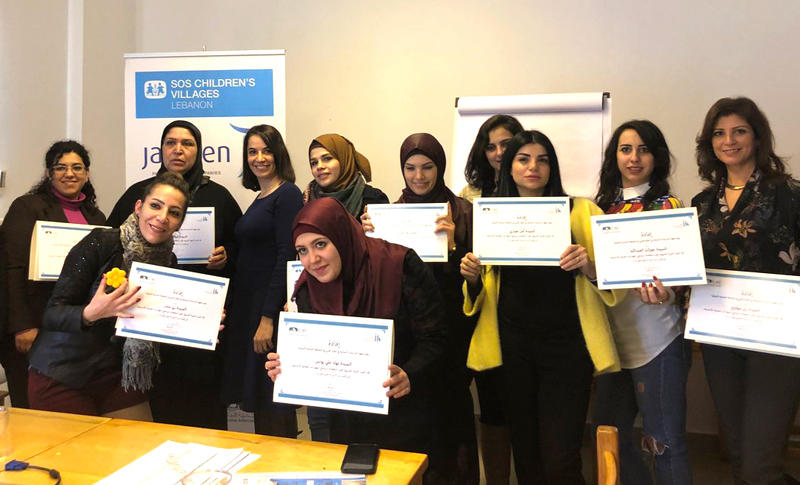Empowering SOS Social Workers
LAU’s Institute for Women’s Studies in the Arab World trains SOS social workers in life skills to better serve women and the community.
The Institute for Women’s Studies in the Arab World (IWSAW) recently completed its latest round of training for Qudwa: the Basic Living Skills Program (BLSP), a signature program that has been in operation for more than 30 years.
Created by IWSAW in 1985, Qudwa is a non-formal education package providing life skills to vulnerable women at the community level. The BLSP program has been used by a number of NGOs in the region and has been adopted by the Ministry of Social Affairs and its centers in different parts of Lebanon.
This last round of training was conducted in collaboration with SOS Children’s Villages, a Lebanese NGO that has worked for nearly 50 years to help needy and at-risk children and families. In training SOS social workers, they are empowered to apply these lessons during their work with women beneficiaries and refugees, some of whom lack access to information on taking care of their basic needs.
The topics cover health, environment, nutrition, reproductive health, childhood and adolescence, civic education and conflict management, empowerment of women through work, chronic diseases, physical and mental disabilities, and gender-based violence. By working with women, the project will impact the broader population, as the subjects will be able to positively influence the lives of their families and communities.
The project consists of two phases: training 10 SOS social workers on the Qudwa kit, and coaching, mentoring and following up with them during their rollout of the kit in local communities. Each social worker will be working with 200 Lebanese and Syrian women and girls in different governorates.
Over the next four months, the project will serve hundreds of vulnerable women. This training will empower Arab women to strengthen their capacities, improve the quality of their lives and those of their families, and become active participants in sustainable and equitable development.
Moufeeda Haidar, an IWSAW staff member and one of the lead trainers, is also a recipient of the training herself. She said: “This experience strengthened me as a young woman and made me believe that real change is possible. I gained insight into the lives of families with diverse backgrounds, and I am happy to have the opportunity to share this learning with others.”
According to Haidar, “The skills these women learn will transform the lives of their families, thus positively affecting the larger community. This is our ultimate aim.”
“This training is very valuable and appreciated,” affirmed Nida Qamar, a project manager at SOS. “It’s the only one of its kind, and the social workers are excited, given that this is the first time they’re receiving this kind of information through such robust instruction.”
The Institute believes that their Qudwa training is a unique contribution to the social development landscape, and has the possibility to grow exponentially, not just in Lebanon but throughout the Arab region.
